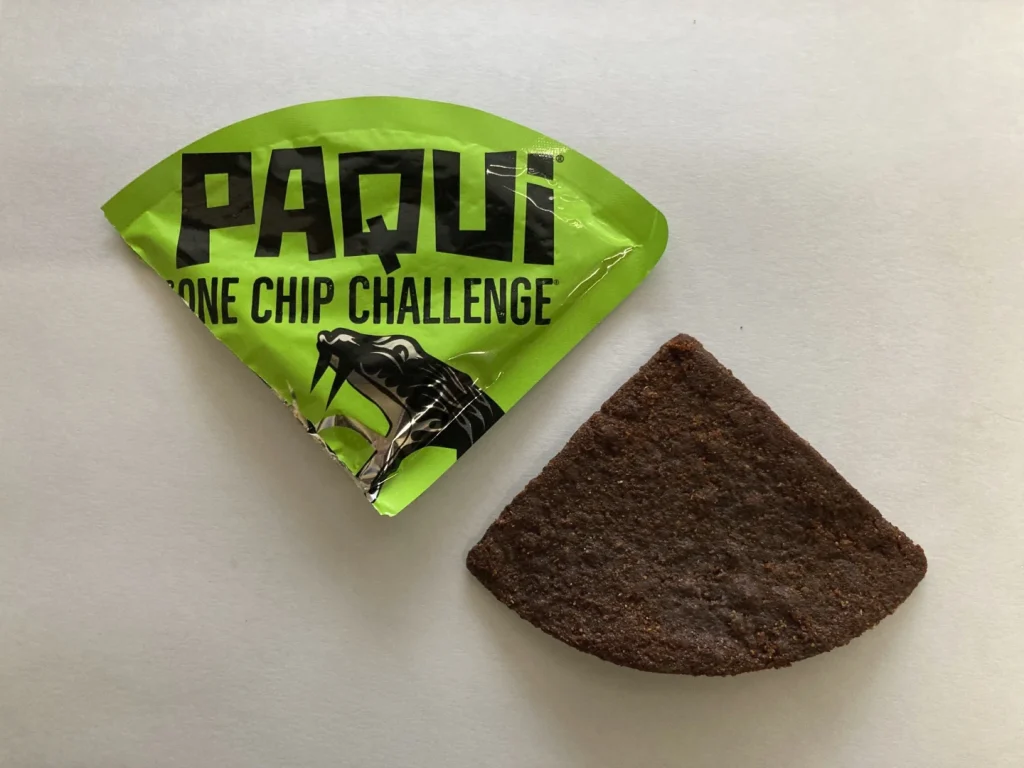The tragic death of a teenager in Worcester, Massachusetts, following his consumption of an exceedingly spicy tortilla chip has sparked widespread concern regarding the dangerous trend of social media challenges.
This unfortunate incident has also prompted retailers to take immediate action by removing the product from their shelves, in response to the manufacturer’s request.
In remembrance of the beloved 10th-grade student, Harris Wolobah, who had a passion for basketball, his family organized a solemn vigil on Friday, precisely one week after his untimely demise on September 1st.
As the grieving family anxiously awaits the results of the autopsy, which will shed light on the exact cause of his death, they have pointed fingers at the notorious One Chip Challenge as the culprit responsible for this devastating loss.
The topic at hand revolves around a challenging activity that involves participants consuming a chip bearing their own name, and subsequently attempting to refrain from consuming any other food or water.
Unfortunately, the family of the individual involved has declined requests for interviews, leaving many unanswered questions.
On September 1st, authorities were summoned to the residence and discovered the individual, named Wolobah, in an unresponsive and non-breathing state.
He was quickly transported to a hospital but was ultimately pronounced dead. The state medical examiner’s office has indicated that it may take several weeks to determine the cause of death.
In light of this tragic incident, the chip’s manufacturer, Paqui, has taken the initiative to request that retailers cease selling the product.
This news has sparked a wave of discussions, with individuals sharing their own personal encounters with the chip.
Sold at a price of approximately $10, the chip is individually wrapped in foil and presented in a coffin-shaped box.
The packaging explicitly warns consumers about the chip’s nature, stating that it is designed for the “vengeful pleasure of intense heat and pain,” and is intended for adult consumption only, emphasizing the importance of keeping it out of children’s reach.
Despite these warnings, it appears that children have had no difficulty purchasing the chips.
A recent incident in Florida has brought attention to the dangers of a popular challenge among children and teenagers.
A 10-year-old girl was suspended from school after bringing a chip to class, which resulted in six children needing medical attention.
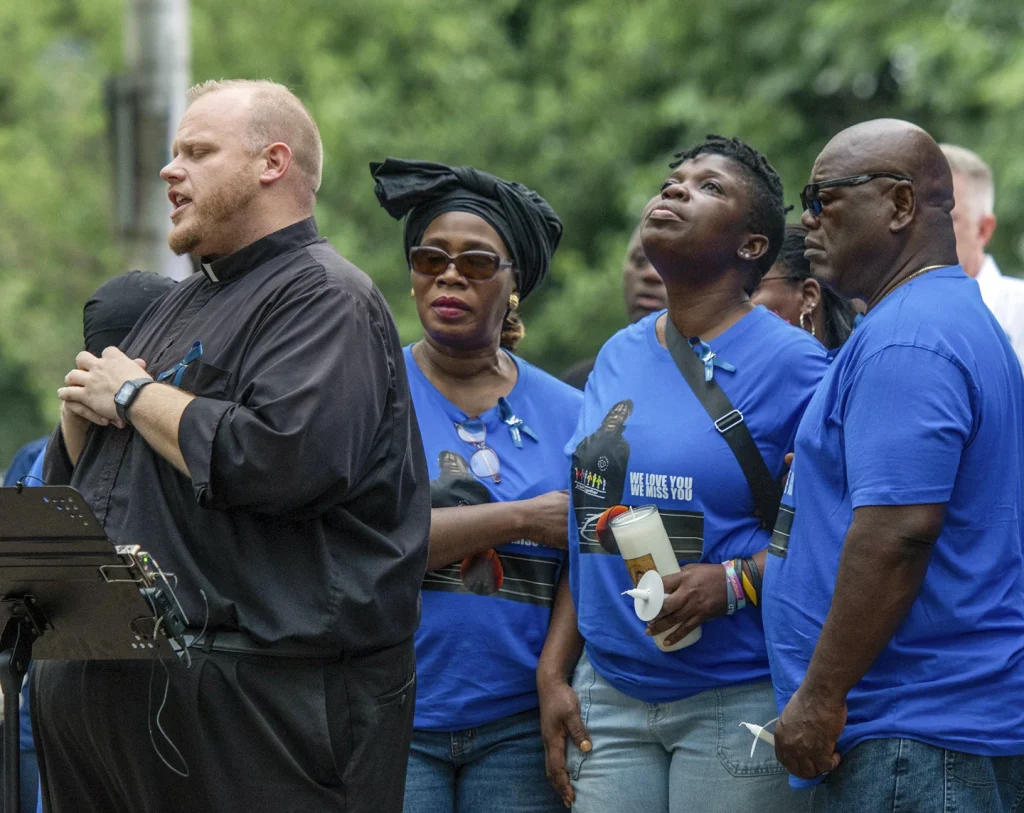
The girl’s father expressed his concern, questioning why a 12-year-old was able to purchase the chip in the first place. This incident is not isolated, as there have been reports from across the country of individuals falling ill after participating in this challenge.
In California, three high school students were sent to the hospital, while a Minnesota school had to call paramedics when seven students became sick.
The tragic death of a teenager has further highlighted the seriousness of this challenge, causing his friends to rethink their previous beliefs about its safety.
It is evident that immediate action needs to be taken to address the sale and consumption of these chips, as they pose a significant risk to the health and well-being of young individuals.
It is with deep regret and sorrow that we contemplate the untimely end of a young life, Marcus Kaba, aged 15, who expressed his remorse over the tragic outcome resulting from a social media challenge.
Marcus, who shared fond memories of playing basketball together with the departed individual, is undoubtedly grappling with the profound loss and the senseless nature of this incident.
The sentiment of sadness and sympathy that Marcus conveys reflects the collective sentiment of a society that mourns the loss of a promising young individual.
This unfortunate event serves as a stark reminder of the potential dangers inherent in certain online trends and challenges, which can have devastating consequences.
As we reflect upon this tragic occurrence, it is imperative that we take pause and consider the impact of our actions, particularly in the realm of social media, and strive toward promoting responsible and safe behavior in the digital world.
During a recent vigil, David Adjer, a fellow teenager who attended school with Harris, expressed his initial disbelief upon hearing about the untimely demise of Wolobah, allegedly due to the consumption of a chip.
Adjer’s immediate reaction was one of anger, prompting him to question the continued availability of such a chip.
In his view, if someone were to lose their life as a result of consuming this chip, it would be imperative to remove it from circulation.
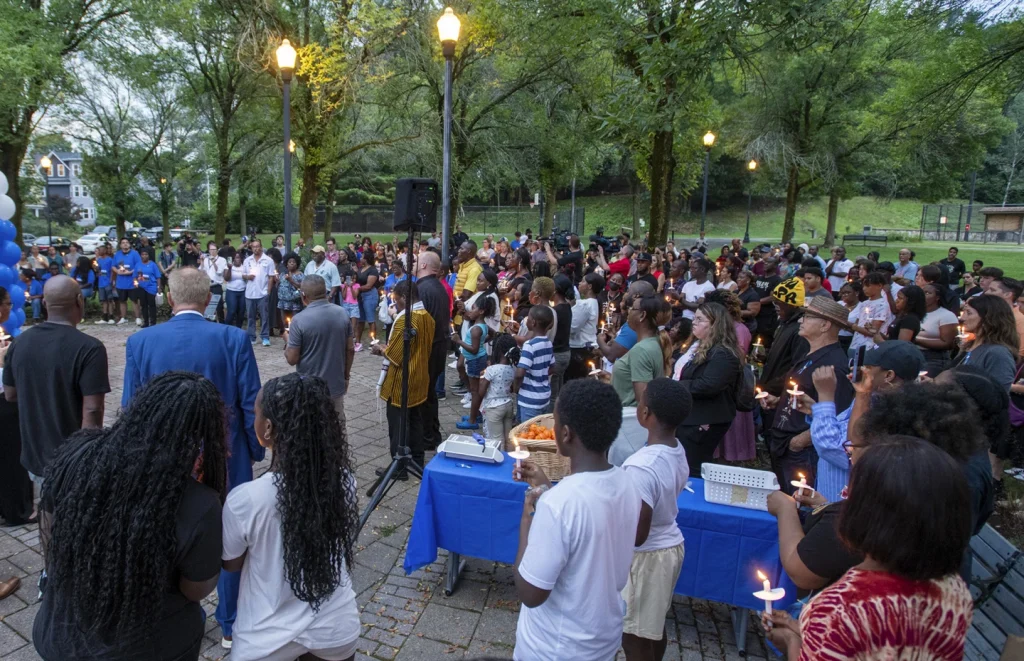
Adjer firmly believes that the potential risks associated with this chip far outweigh any benefits, and thus advocates for its removal from store shelves to prevent further tragic incidents from occurring.
However, it is not only teenagers who have been enticed by this culinary challenge; adults, too, have been putting their spice tolerance to the test.
Joaquin Diaz, a 31-year-old construction worker from the Bronx, recently decided to try the chip after stumbling upon various social media videos showcasing the challenge.
Being an enthusiast of spicy food, Diaz was intrigued to see how he would fare in comparison to others who had taken on the daring feat.
In a phone conversation with The Associated Press on Friday, Diaz recounted his experience with the hot chip, expressing surprise at the subsequent stomach cramps and diarrhea that prevented him from going to work the following day.
He admitted that the pain was intense and even confessed to feeling a bit anxious beforehand. Despite the discomfort, Diaz initially intended to give the chip another try with some friends.
However, upon learning about Wolobah’s tragic death, he ultimately decided against it. Meanwhile, Roger Trier, a 56-year-old content creator and graphic designer from Palatine, Illinois, shared a video on TikTok and YouTube in which he successfully completed a 100-chip challenge earlier this month.
Trier revealed that he had spent more than two decades training his spice tolerance. He noted that many individuals participating in challenges on social media fail to comprehend the potential consequences involved.
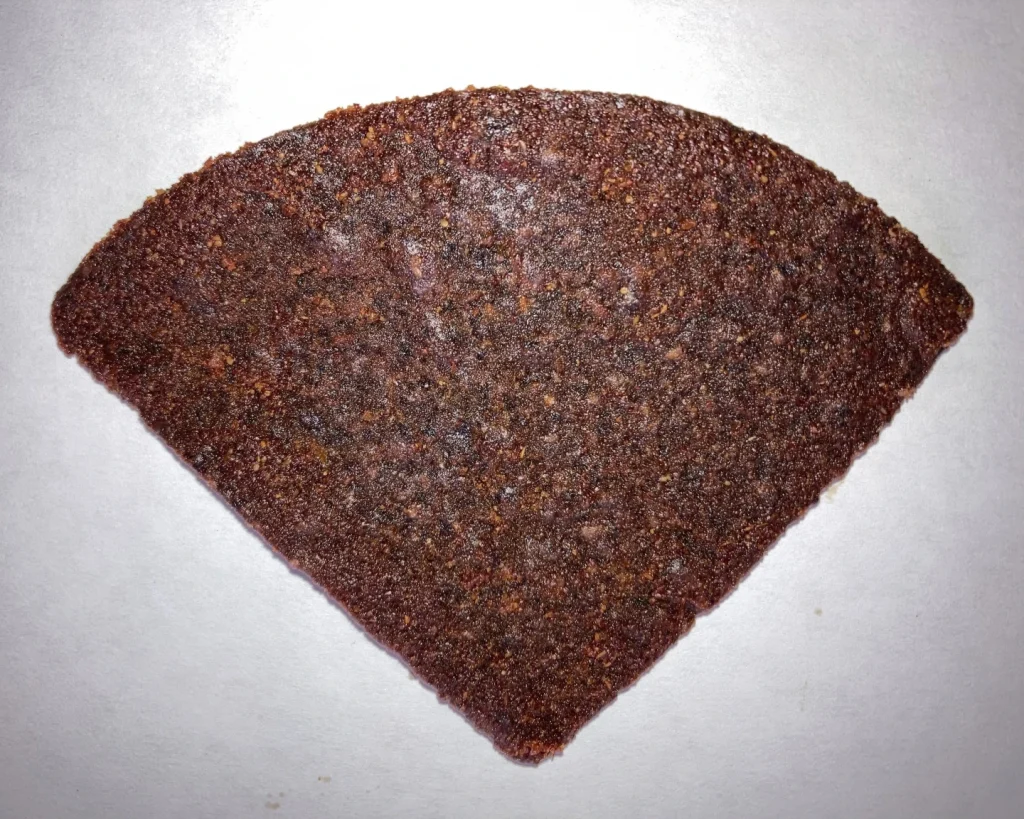
Trier, in his statement, expresses his belief that individuals under the age of 18 should not be allowed to partake in spicy challenges without adult supervision.
He argues that young people may not possess the necessary knowledge and experience to handle the intense reactions that spicy food can provoke, or the potential peer pressure that might compel them to take risks they do not fully comprehend.
The disappearance of the chip from the shelves of major retailers, such as 7-Eleven and Walgreens, shortly after it was still available in some stores on Thursday, is notable.
Even Amazon has halted sales of the product and is notifying customers who recently purchased it that Paqui, the manufacturer, is removing it from the market. Furthermore, eBay has taken measures to block any listings related to the One Chip Challenge.
The popularity of the chip seems to be largely driven by individuals posting videos on social media platforms, showcasing themselves or their friends taking on the challenge.
These videos depict people, including children, unwrapping the packaging, consuming the chips, and subsequently reacting to the intense heat. Some of these reactions include gagging, coughing, and pleading for water.
Interestingly, Meta, the parent company of Instagram and Facebook, Google, the owner of YouTube, and TikTok have not yet responded to requests for comment regarding any actions they may be taking in response to this issue.
It remains to be seen whether these influential social media platforms will take any measures to address the potential risks associated with the viral trend of spicy challenges.
Paqui, a subsidiary of The Hershey Company located in Texas, expressed its profound sadness over the death of Wolobah in a statement published on its official website on Thursday.
The company acknowledged the growing trend of teenagers and other individuals disregarding the warnings associated with their product.
Consequently, as a precautionary measure, Paqui has taken the initiative to collaborate with retailers in removing the product from store shelves, despite its adherence to food safety regulations.
On Friday, a vigil was held in Worcester, where approximately 100 people, including Wolobah’s friends and teammates, gathered in a park located below his residence.
The attendees lit candles, shared stories, and enjoyed pizza together. Enormous photographs of the young man, with his distinctive dreadlocks, were displayed on a statue, adorned with his name in gold lettering and surrounded by blue and white balloons.
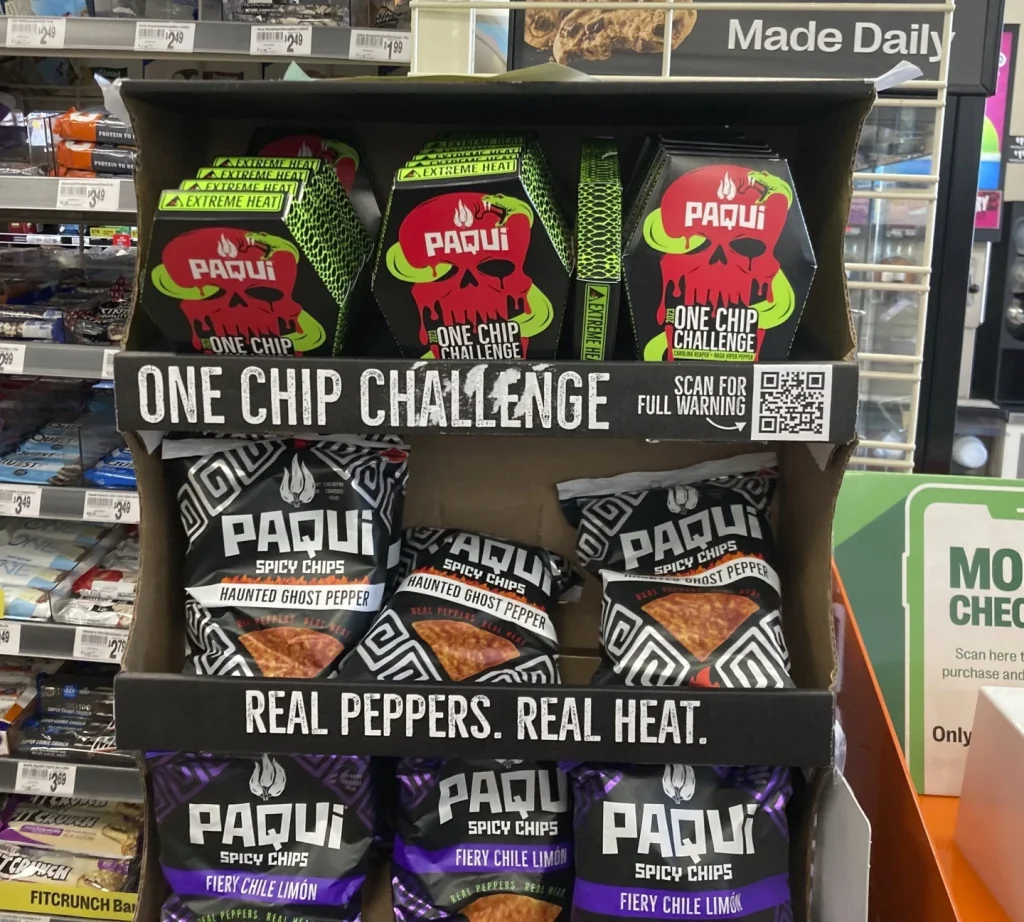
Miniature basketballs were distributed among the attendees. The most poignant moment occurred when Wolobah’s mother, Lois, approached her son’s photograph, gazing up at it while repeatedly calling out his name and sobbing.
At one point, she nearly collapsed and had to be supported by other family members while a relative addressed the crowd.
Valerie Richardson, Wolobah’s cousin, spoke to the gathering, emphasizing the community’s unity through their shared memories and love for Harris, referring to him as their brother, son, and nephew.
Richardson stated that Harris possessed the remarkable ability to bring people together, and she believed that the vigil was the perfect way to honor his memory.
Massachusetts authorities issued a warning to parents regarding the challenge, while physicians cautioned about the potential unintended consequences of consuming such spicy foods.
Dr. Lauren Rice, the chief of pediatric emergency medicine at Tufts Medical Center in Boston, explained that individuals may experience mild symptoms such as burning or tingling of the lips and mouth, but more severe symptoms, including significant abdominal pain, nausea, and vomiting, can also occur.
Dr. Peter Chai, an associate professor of emergency medicine and medical toxicology at Brigham and Women’s Hospital in Boston, further emphasized the potential dangers associated with consuming these chips under certain circumstances.
Chai, in a statement delivered with a formal tone, raises a concern about the potential dangers associated with consuming chips that contain a significant concentration of capsaicin, the compound responsible for the fiery sensation in chili peppers.
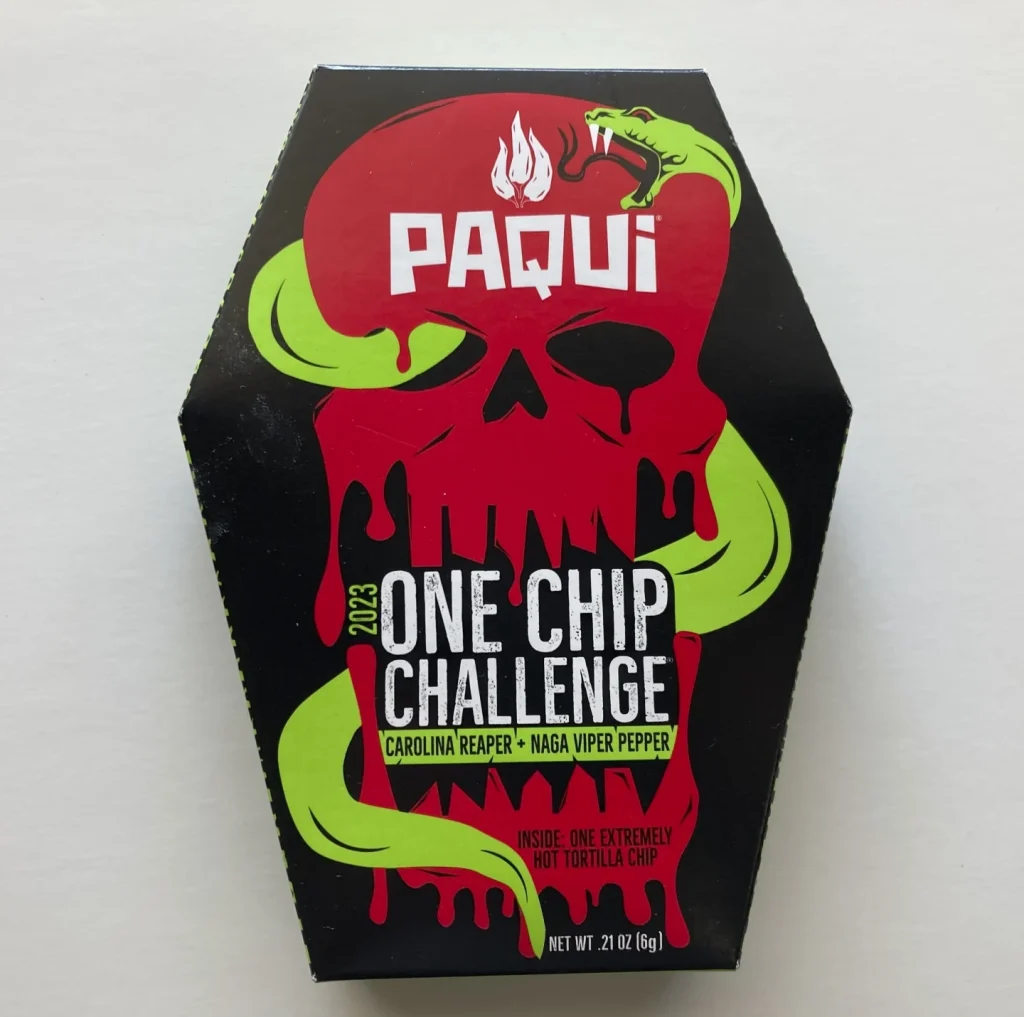
He emphasizes that the severity of the consequences would hinge upon the quantity of capsaicin an individual is exposed to.
At higher doses, Chai warns that capsaicin could potentially trigger fatal dysrhythmia, a condition characterized by abnormal heart rhythms, or even cause irreparable damage to the heart.
This highlights the importance of exercising caution when consuming such chips, as the potential risks to one’s health should not be underestimated.
